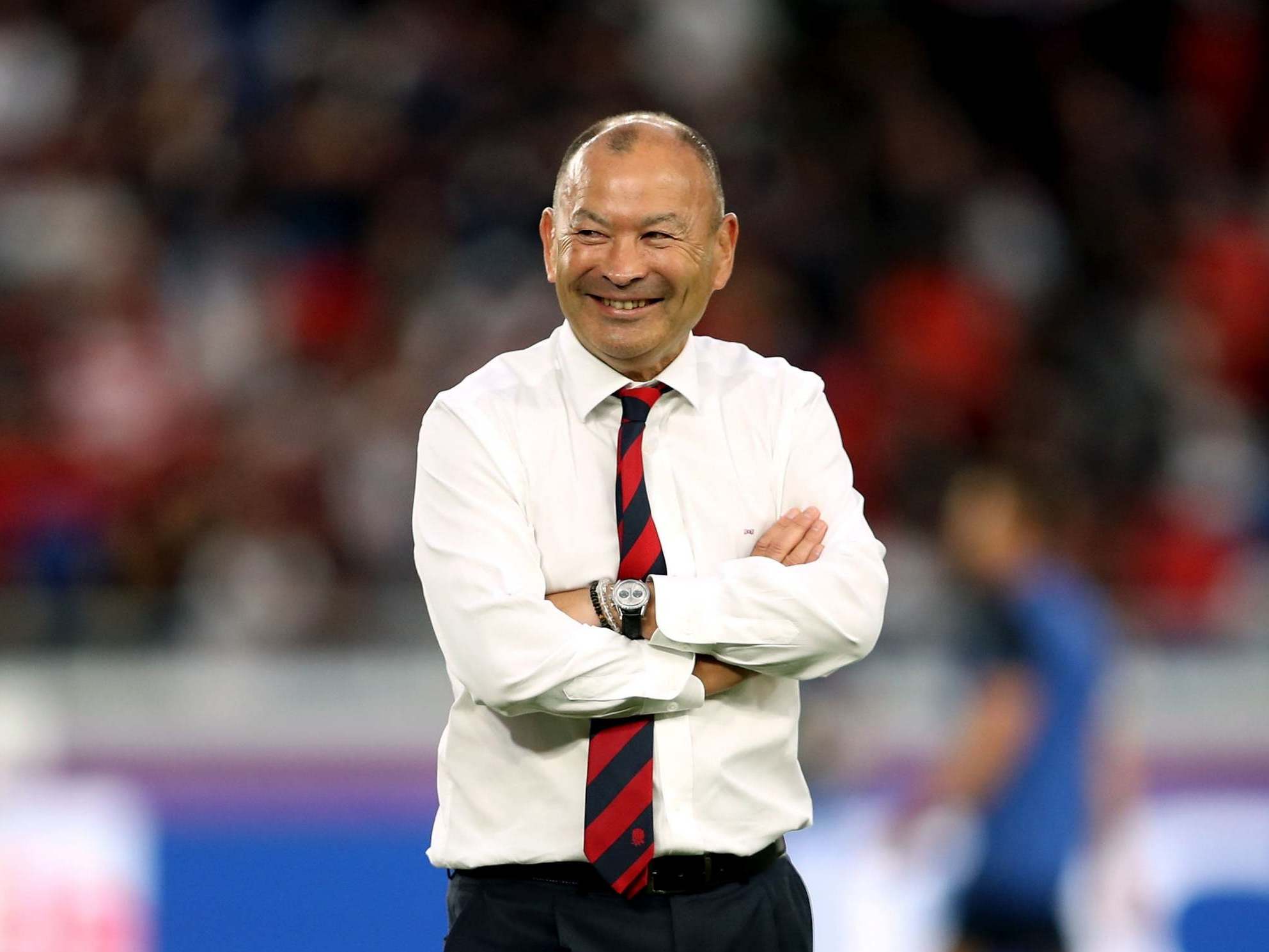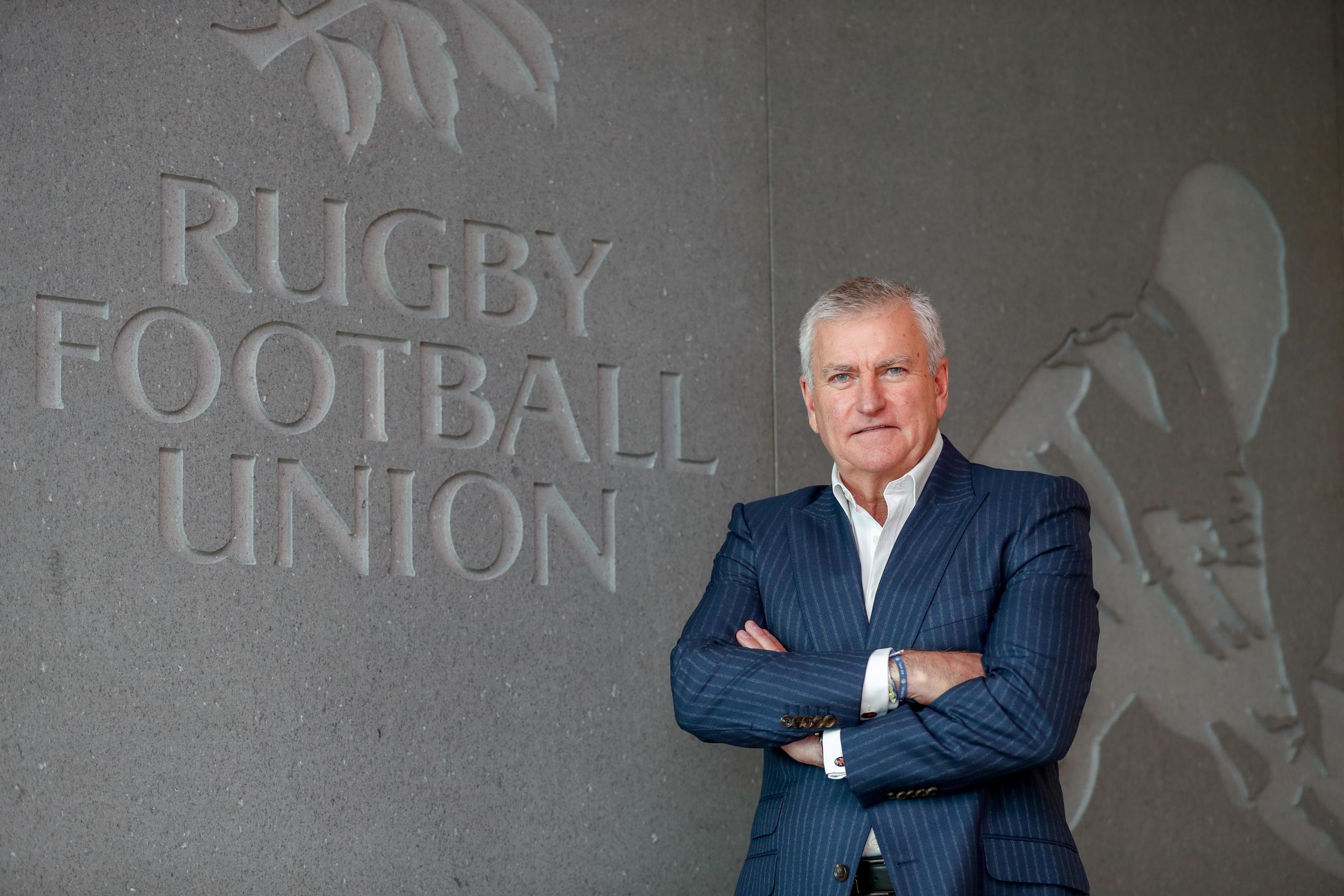Coronavirus crisis has proven global rugby is broken as talks begin over how to rebuild the sport
Pay cuts, calendar shake-ups and cost-capping measures will be brought into the game in an effort to see the sport return from the coronavirus pandemic much stronger than it went into it, but many will fall financially by the wayside

Your support helps us to tell the story
From reproductive rights to climate change to Big Tech, The Independent is on the ground when the story is developing. Whether it's investigating the financials of Elon Musk's pro-Trump PAC or producing our latest documentary, 'The A Word', which shines a light on the American women fighting for reproductive rights, we know how important it is to parse out the facts from the messaging.
At such a critical moment in US history, we need reporters on the ground. Your donation allows us to keep sending journalists to speak to both sides of the story.
The Independent is trusted by Americans across the entire political spectrum. And unlike many other quality news outlets, we choose not to lock Americans out of our reporting and analysis with paywalls. We believe quality journalism should be available to everyone, paid for by those who can afford it.
Your support makes all the difference.The coronavirus pandemic has revealed the flaws in the global rugby system that threatens to put players, staff, clubs and even unions out of business, triggering talks at the highest level about how the game can be rebuilt into a position of security.
A decision will be made by the end of the month on whether the summer tours in July can go ahead, with England due to tour Japan for the first time, Ireland heading to cash-strapped Australia, Scotland flying to South Africa and Wales taking on New Zealand.
The global outbreak of Covid-19 has made that tours close to impossible, with England’s plans particularly in doubt given the Tokyo Olympics scheduled for the end of July have already been postponed. But what is of more concern is the state of the unions, particularly at home where pay cuts, wage deferrals and cancelled bonuses have already been implemented across the four home nations.
Further afield, Rugby Australia are on the brink, with the union making headlines for the wrong reasons after chief executive Raelene Castle’s announcement that 75 per cent of staff were being stood down was described by one attendee as an “appalling corporate cluster f***”. USA Rugby has filed for bankruptcy, while both the New Zealand Rugby Union and the RFU are expecting losses of up to $50m and £50m respectively.
When it was put to RFU chief executive Bill Sweeney on Thursday that the game is not quite as stable as it thought, it was hard to disagree.
“That’s a fair comment,” Sweeney said. “When you have a crisis of this scale – and I don’t think anybody predicted something of this magnitude – it does highlight where there are fault-lines. Some of those are being exposed now.”
World Rugby have watched all of this unfold before them, with regular contact incoming from the national unions ranging from requests for information to desperate pleas for financial help. Speaking to the Daily Mail earlier in the week, World Rugby chairman Bill Beaumont admitted it will undoubtedly require government intervention in some countries to save rugby union.
A silver lining, if it can be described as that in such a time of global crisis, is that a rare opportunity has arisen for rugby to finally find its feet. For those who don’t have a vested financial interest in the game, rugby union has been broken globally for quite some time. Last season 11 of the 12 Premiership clubs posted financial losses, while the money invested by equity firm CVC Capital Partners has all but gone already – any pennies leftover will be used up in the coming months to keep clubs alive – while Super Rugby continues to shrink in size with the imminent exile of Japanese side Sunwolves.
If by some miracle clubs, countries and governing bodies can put their own interests aside because of a realisation that the game is being played on a bubble that has finally burst, rugby union may just come out of the other side of the coronavirus pandemic in a stronger position.
“A lot conversations are around how we come out of this and emerge stronger – we don’t just want to come back in and carry on with the same model that repeats the errors of the past,” added Sweeney. “There are a lot of positive, productive conversations about how we come out of this with rugby union in a better place both domestically and internationally.
“The obvious one is that cost controls are important, creating a better product for the consumer in terms of looking at how the calendar works so we can maximise the commercial revenue side of the game. There are a whole list of things we need to look at and work more closely together on. Those conversations have kicked on fairly quickly.”
One long-winded conversation that finally concluded on Thursday was the agreement on an extension to Eddie Jones’s contract, which will see the England head coach remain in charge of the national team through to the 2023 Rugby World Cup, having initially been out of contract next summer. The announcement came a week after the Australian followed the example set by the RFU’s executive team in taking pay cuts in excess of 25 per cent, with this season’s bonus scheme also scrapped.
“I think the RFU showed the way,” acknowledged Jones. “I was really pleased with how decisive they were and it was easy to make a decision to follow that.”
Jones remains out in Japan with his wife in order to be close with her family, having had to shelf plans to travel back home to Australia to enjoy his mother’s 95th birthday due to the dangers that currently surround visiting the elderly or vulnerable, but remains in a position to do his job given there is no rugby here for him to watch. The contract extension was agreed before the crisis took hold of the world, meaning Jones will benefit from a handsome pay rise to in excess of £800,000 per season – though he has agreed a temporary salary cut of around £50,000 should the financial struggles spread over three months.
To his credit, he has spoken at length of the need for rugby’s leading figures to ensure that the game is in a position to give fans something to cheer for when the global lockdown is lifted.
“It’s a small thing that you do personally to ensure that we can get through the next period of time and part of that is taking that salary cut, but I think the most important part is the role that we have to play once we can get back playing rugby is that it’s important to get the game back together,” Jones added.
“We’ve got to make sure that whatever form rugby takes post-coronavirus it’s in a stronger state than it was previously and I think that’s the ambition of the rugby community to get everyone working together and ensure the game is stronger when we get back playing.”

It has been mooted that the salary cuts seen in the game should be part of a much longer reset of rugby’s finances. For example, how can the sport’s leading figures – and in particular chief executives – earn salaries that either challenge or exceed those seen in football, where income dwarves that of the 15-man game?
The RFU have already moved to furlough 62 per cent of its staff, with 340 members of the 540-odd who work for the world’s richest union now being paid by the government. The expectation is that this number will increase before it goes down. Saying that, at least the RFU and Welsh Rugby Union are willing to forgo their wages at a time of international crisis, as executives in Scotland and Ireland have merely deferred their pay packets until the game is back on its feet – Scottish Rugby Union chief executive Mark Dodson’s £933,000 annual wage will eventually go through in its entirety.
The match fees handed out to England’s internationals will also be up for review this summer, with the rather lucrative £25,000 cheque for each Test appearance almost certain to be reduced. However, there was no confirmation on whether these would prove permanent changes.

“It’s too early to say that at this stage,” said Sweeney. “The reaction there has been it (pay cuts) was the first thing that we felt we needed to do. It’s almost like the first phase of this crisis, how do we manage through the initial stages, how do we put programmes in place that we’re in the best shape we can be, and the decision to take those pay cuts and cancel bonuses for the executive team and for Eddie for this year were taken.
“But we’re taking it step by step, we’ll all be watching, all businesses around the country will be watching how this is evolving. The difficulty with this is you don’t know where the finish line is currently so we’ll continue to monitor it and take the necessary steps that we have to take.”
Join our commenting forum
Join thought-provoking conversations, follow other Independent readers and see their replies
Comments